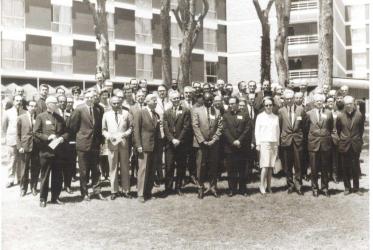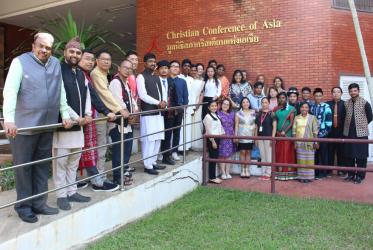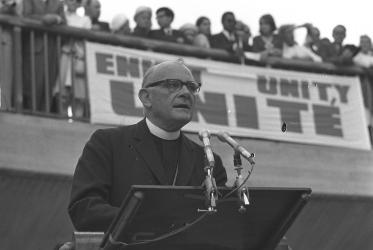Displaying 1 - 20 of 54
23 October 2023
ACT Alliance general secretary: “equity is not negotiable”
26 September 2023
African church leaders train in leadership, diakonia and development
12 November 2021
WCC moderator speaks at Justice Conference in Norway
09 November 2018
Third annual Young Ambassadors of Peace in Asia training begins
17 October 2018
Romani people seek “lives of decency, dignity, and justice”
27 September 2018














